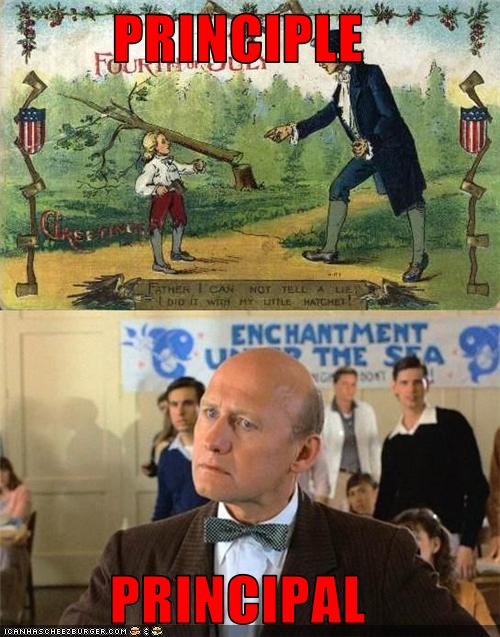!['MC Hammer Slide,' xkcd 108 [CC BY-NC 2.5 (http://creativecommons.org/licenses/by-nc/2.5/)], via xkcd.com mc_hammer_slide](http://crypticphilosopher.com/wp-content/uploads/2012/07/mc_hammer_slide-268x300.png)
Via xkcd.com. Click to embiggen.
Language is a constantly-evolving beast. To paraphrase
Winston Churchill, it is the worst possible form of communication, except for all the others that have been tried. Words fall out of usage, to the point where the lose whatever original meaning they may have had. When is the last time you heard someone, in a fit of pique, say
“fie on them”? For that matter, when did you last hear someone use the phrase
“a fit of pique”?
At the same time, we add new words to the language at an alarming rate. (It’s not worth crying over, so I’ll just have to LOL.)
I’m not that big on the finer points of English literary conventions. (Note how I put the questions marks outside the quotation marks up there? That’s just how I roll.) What does bug me is when words that have a very specific meaning, often in a legal sense (legalese alert…), start to veer away from their specialized meaning. This eventually causes confusion as to whether someone means the specific definition or something else. Sometimes, hilarity ensues, and sometimes, OMG.
Pondering this (yes, this really is how I spend my time), I thought of the part-snarky, all-dorky headline (unfortunately it’s not original), and I was going to dive into an example. Then I realized that I wasn’t sure if “grammar” is even the right word to use here. What if I should be saying “syntax”?
So I went to the dictionary, and apparently “syntax” is a form of “grammar,” I guess sort of like how entomology is a form of biology.
Grammar:
a : the study of the classes of words, their inflections, and their functions and relations in the sentence
b : a study of what is to be preferred and what avoided in inflection and syntax
Syntax:
a : the way in which linguistic elements (as words) are put together to form constituents (as phrases or clauses)
b : the part of grammar dealing with this
So yeah, I’m going with grammar on this one. Stay tuned.
Image credit: ‘MC Hammer Slide,’ xkcd 108 [CC BY-NC 2.5], via xkcd.com.
 Here’s a goof I see all the time. It doesn’t help that the two words are pronounced the same and only differ by two letters, but they have very different meanings. The two meanings can even have serious legal significance, so ignore them at your peril.
Here’s a goof I see all the time. It doesn’t help that the two words are pronounced the same and only differ by two letters, but they have very different meanings. The two meanings can even have serious legal significance, so ignore them at your peril.


!['MC Hammer Slide,' xkcd 108 [CC BY-NC 2.5 (http://creativecommons.org/licenses/by-nc/2.5/)], via xkcd.com mc_hammer_slide](http://crypticphilosopher.com/wp-content/uploads/2012/07/mc_hammer_slide-268x300.png)